These are the contents informed by Mr. Dao Trung Chinh, Director of the Department of Planning and Land Resources Development ( Ministry of Natural Resources and Environment ) at the Workshop "Land management and land price determination - Inadequacies from practice and through State Audit activities" chaired by the State Audit (SA) in coordination with the Ministry of Natural Resources and Environment on the morning of October 18.
Many regulations are no longer suitable for practice.
Mr. Dao Trung Chinh, Director of the Department of Planning and Land Resources Development (Ministry of Natural Resources and Environment) said that land management and use still has many shortcomings and limitations. In particular, up to now, some legal regulations on land prices have no longer been effective in practice, revealing a number of limitations.
Specifically, some methods of determining land prices are not suitable for the actual conditions of information on the land use rights market and state management of land prices in the context of an incomplete land price database. Regulations on the content and conditions for applying land valuation methods are not suitable and specific, leading to cases where different methods are applied to a land plot with different results, making localities confused in their choice.
At the same time, the decentralization and delegation of authority in determining land prices are not suitable and not consistent with the authority to allocate land, lease land, recover land... leading to the workload of specific land valuation being mostly concentrated on provincial agencies, while the capacity of valuation agencies and Land Valuation Councils is still limited.
 |
| Overview of the workshop. (Photo: KT) |
In addition, land prices in some localities are much lower than market prices. Regulations on selecting a consulting unit to determine land prices must be based on a specific land valuation plan and comply with the law on bidding, leading to some cases where a consulting unit cannot be selected, prolonging the time and slowing down the progress of land valuation...
From local practice, Mr. Mai Trong Thai, Deputy Director of the Hanoi Department of Natural Resources and Environment, also emphasized that some unresolved problems are mainly due to the fact that land law policies and other related laws are still inconsistent and inconsistent; land law has many contents that are no longer suitable to current reality and need to be studied and revised.
For example, regulations on receiving transfers and capital contributions using agricultural land use rights to implement commercial housing investment projects cannot be implemented due to inconsistencies between the provisions of the Land Law, the Investment Law and the provisions of the Housing Law; there is no mechanism to handle cases where investors have difficulty receiving transfers of all land use rights (because land users do not agree or require high prices, etc.).
Regarding the policy of land recovery, land allocation, and land lease for investment projects, Mr. Thai pointed out that the projects are subject to land recovery by the State according to the provisions of the land law before the 2013 Land Law (but have not completed site clearance); are transferred for implementation but are not subject to land recovery according to the 2013 Land Law; there are no regulations allowing continued implementation of land recovery for site clearance for the remaining land area that has not completed site clearance. Investors must accept the transfer or receive capital contribution in the form of land use rights for this land area.
“This leads to one investment project, the investor has to access land in two ways, causing difficulties for state agencies and investors because people do not agree, the project is prolonged, and investment progress is slow” - Mr. Thai emphasized.
Perfecting regulations on land finance and land prices
From the above problems, the Deputy Director of the Hanoi Department of Natural Resources and Environment proposed to strengthen the work of building land price lists and specific land prices to ensure the principle of being close to market prices; strengthen inspection and examination and resolutely revoke projects that are slow to implement and violate land laws in accordance with regulations.
Institutionalizing the spirit of Resolution No. 18-NQ/TW, Mr. Dao Trung Chinh said that the draft Land Law (amended) has specifically stipulated the principle of land valuation following the land valuation method according to market principles; strictly complying with the method, order and procedures for land valuation; ensuring honesty, objectivity, publicity and transparency; ensuring independence between the consulting organization, the Land Price List Appraisal Council, the specific Land Price Appraisal Council and the agency or person with the authority to decide on land prices...
At the same time, the draft Law clarifies the input information to determine land prices according to the methods that must ensure: land prices are recorded in notarized and certified land use right transfer contracts; land prices that win land use right auctions without being affected by factors that cause sudden price increases or decreases, transactions involving blood relations or other incentives recorded in the national land database; in cases where there is no land price information in the land database, land price information must be collected through investigation, survey, information on revenue, costs, and income from land use according to the market.
The Draft Law also specifically stipulates the time for determining land prices for each case of land allocation, land lease, permission to change land use purpose, land use extension, change of land use form, and adjustment of land allocation and land lease decisions that change the area, land use purpose, and land use term.
“The competent People's Committee must approve specific land price decisions within no more than 180 days from the date of the decision on land allocation, land lease, permission to change land use purpose, land use extension, change of land use form, adjustment of land allocation decisions, land lease, and adjustment of detailed planning,” Mr. Dao Trung Chinh emphasized.
In addition, the Draft Law also stipulates that land prices for calculating land rent and paying annual land rent are stable for a 5-year cycle; land rent for the next cycle is calculated based on the land price list of the first year of the next cycle. In case the land rent increases compared to the previous cycle, the land rent payable is adjusted to increase by no more than a certain percentage prescribed by law or the Government compared to the previous cycle. This provision allows enterprises to proactively account for land rent during the production and business process to stabilize the investment environment.
According to Mr. Dao Trung Chinh, the content of land valuation methods and the conditions for applying each method are also clearly stipulated in the Law to avoid problems and risks during the implementation process. The Government's land price framework is abolished, and the land price list is stipulated to be built periodically every year, publicly announced and applied from January 1 of the year and applied to calculate land use fees when the State allocates land, leases land, changes land use purposes, recognizes land use rights, taxes, fees, etc.
In particular, the draft Law also stipulates the transition to continue using the current land price list until December 31, 2025 so that localities have enough time to develop and issue new land price lists according to the new provisions of the Land Law. Supplementing the order of developing land price lists, the responsibilities of the People's Council and People's Committee in developing land price lists; developing land price lists according to value zones, standard land plots for areas with digital cadastral maps and land price databases.../.
Source link


![[Photo] President Luong Cuong receives Lao Vice President Pany Yathotou](https://vphoto.vietnam.vn/thumb/1200x675/vietnam/resource/IMAGE/2025/5/25/958c0c66375f48269e277c8e1e7f1545)
![[Photo] The coffin of former President Tran Duc Luong arrives in Quang Ngai](https://vphoto.vietnam.vn/thumb/1200x675/vietnam/resource/IMAGE/2025/5/25/1f1aca0d92ab47deae07934e749b35e6)



![[Photo] Festival of accompanying young workers in 2025](https://vphoto.vietnam.vn/thumb/1200x675/vietnam/resource/IMAGE/2025/5/25/7bae0f5204ca48ae833ab14d7290dbc3)



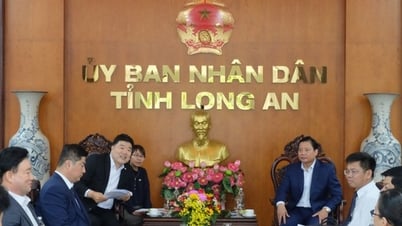



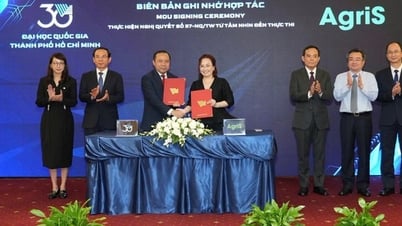







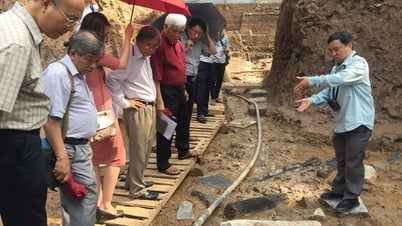











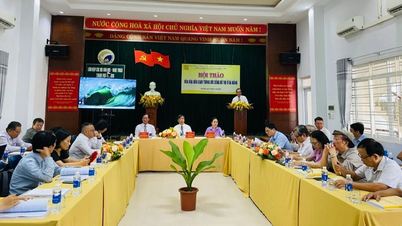





















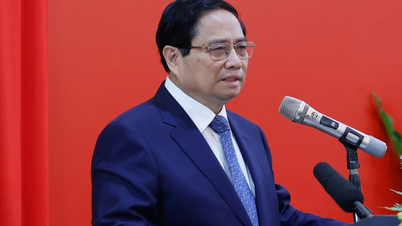

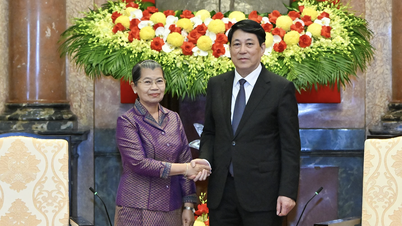

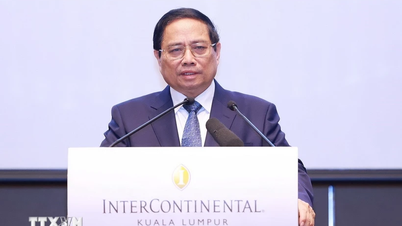



























Comment (0)